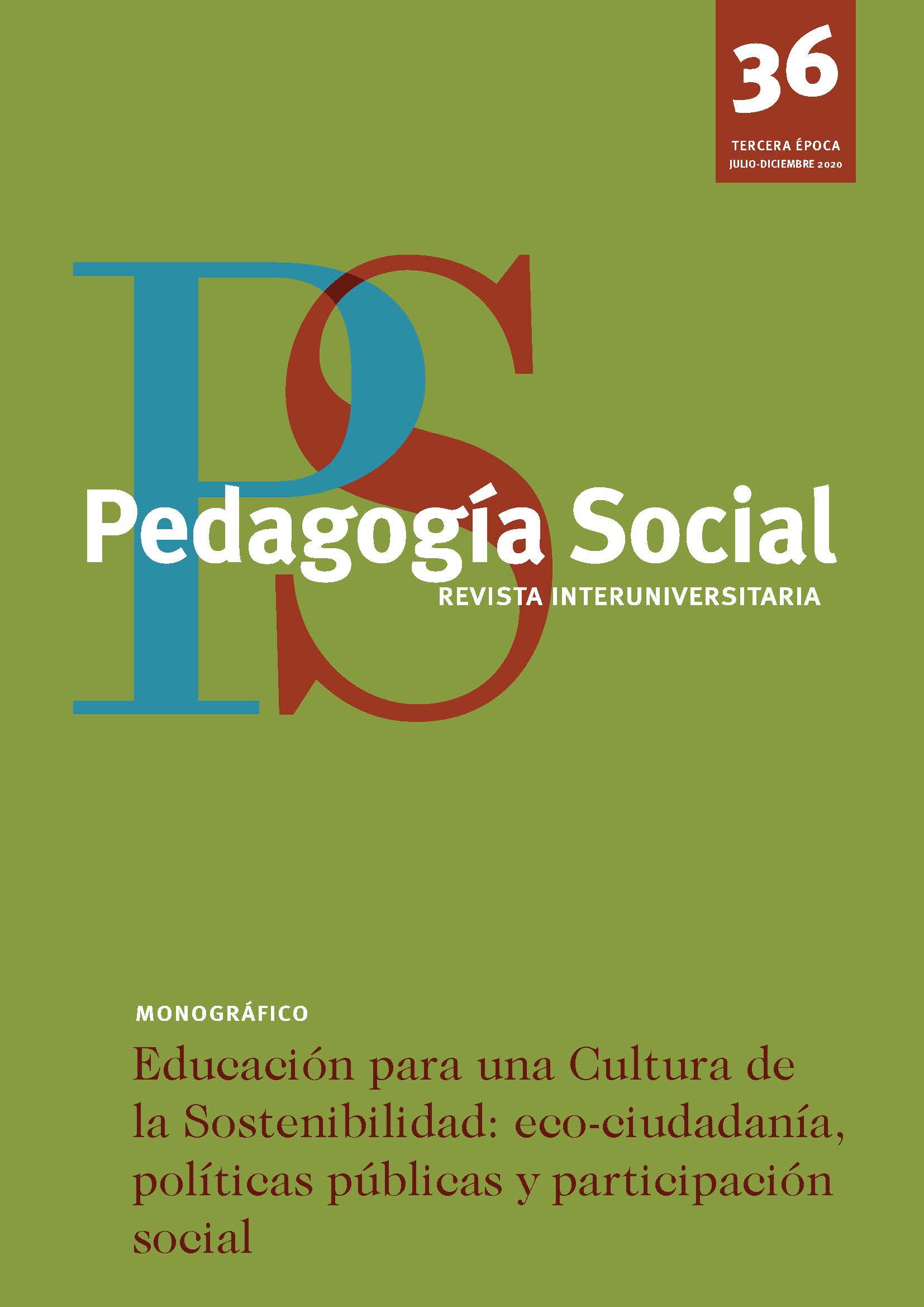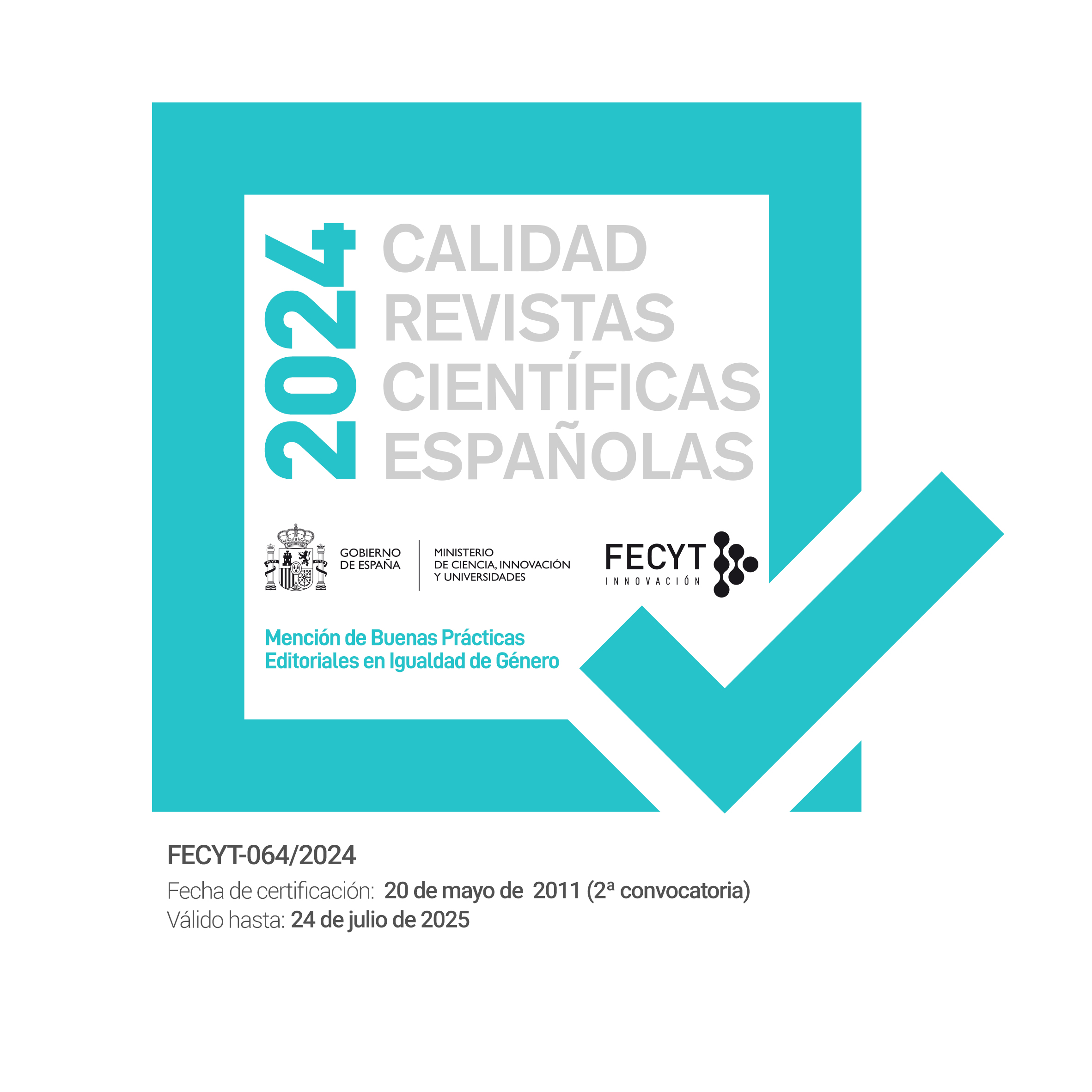Climántica: a social, pedagogical and environmental project to face climate change
DOI:
https://doi.org/10.7179/PSRI_2020.36.04Keywords:
Social pedagogy, Environmental education, Project, Innovation, Climate changeAbstract
The climate crisis means the most complex social, economic and environmental challenge facing humanity. International guidelines for addressing the global problem of climate change has been reflected in the Preliminary Draft of the Climate Change and Energy Transition Law of Ecologic Transition and Demographic Challenge Ministry, which highlights the need for education and training to achieve the objectives set out in the Paris Agreement (United Nations, 2015). In this situation, Social Pedagogy cannot be kept out, and its answers cannot be simple in the face of the complexity of the contingency.
In this scenario, we present the analysis of the Climántica project, which emerged in Galicia in 2007 and which anticipated these demands, achieving and consolidating in the field of Environmental Education in the national and international sphere creating networks of work and collaboration at the local, national, and international levels.
This article presents the project's description, planning, prospective, and objectives. Quantitative and qualitative data are provided, with more than 2.025.000 visits registered on the official project website from more than 1.365.000 unique users registered until 31 of May 2020 from a large number of countries around the globe. The results allow us to assess as successful the achievement of the established objectives. We finalize the text in an approach to an initial evaluation of the project from a Good Practices perspective in order to establish a future in-depth assessment and detect weaknesses for its short, medium and long term future.
Downloads
Downloads
Published
How to Cite
Issue
Section
License
Copyright (c) 2020 Pedagogía Social. Revista Interuniversitaria

This work is licensed under a Creative Commons Attribution-NonCommercial-ShareAlike 4.0 International License.
Copyright and right to archive
The published version of the articles can be self-archived by their authors in open access institutional and thematic repositories. However, Pedagogía Social. Revista Interuniversitaria must authorize partial or global reutilisation on new papers or publications.
Published papers must be cited including the title of the journal Pedagogía Social. Revista Interuniversitaria, issue, pages and year of publication
Ethical responsibilities
Pedagogía Social. Revista Interuniversitaria does not accept any material that has been previously published in other documents or publications. Authors are responsible for obtaining the required permissions for partial or global reproduction any material from other publications, and to correctly quote its origin.
Pedagogía Social. Revista Interuniversitaria is obliged to detect and report fraudulent practices.
Only those who have intellectually contribute to the development of the paper must appear as authors.
The journal expects authors to declare any commercial partnership that might entail a conflict of interest with respect to the submitted article.
Authors must mention in the article, preferably in the “methodology” section, that the procedures used during the samplings and controls have been made after getting informed consent.
The journal will not use any received contribution in a way other than the goals described in these guidelines.
Copyright Notice
© Pedagogía Social. Revista Interuniversitaria. Papers published in both the printed and online versions of this Journal are property of Pedagogia Social. Revista Interuniversitaria, being required to cite the source in any partial or total reproduction.
Unless otherwise stated, all content of this electronic journal is distributed under "Creative Commons Attribution-Non commercial 3.0 Spain" (CC-by-nc) license for use and distribution. The informative version and the legal text of this license is available here. This has to be expressly stated in this way when necessary.






